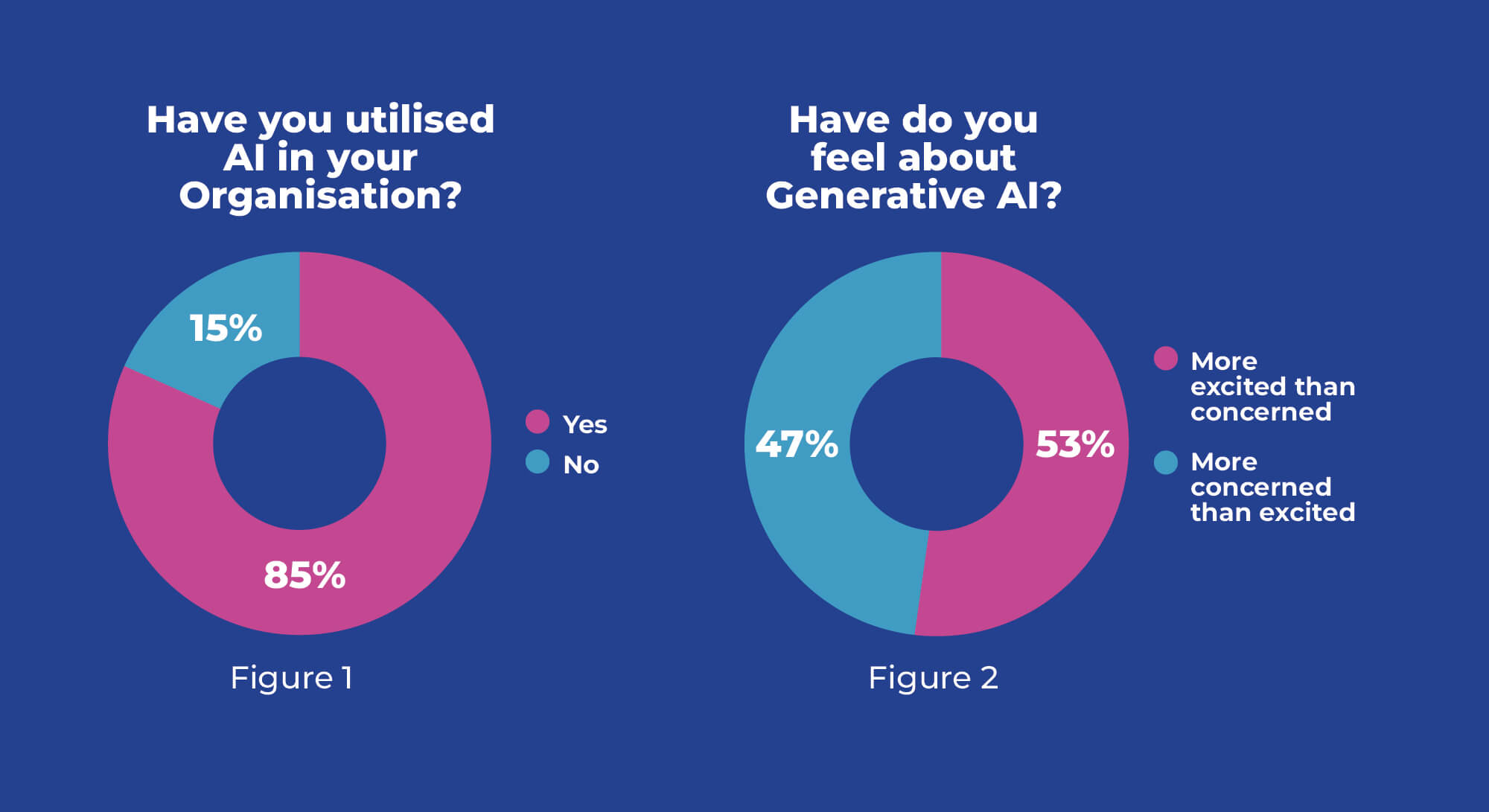



Artificial Intelligence (AI) is the discipline of creating intelligent machines capable of analytical reasoning, enabling organisations to operate effectively and with foresight. The current estimated value of the global AI market is 197 billion US dollars, and projections indicate that it will reach 1.8 trillion US dollars by 2030, expanding at a compounded annual growth rate (CAGR) of 37.3 per cent from 2023 to 2030.
The advancement of AI technology has also significantly transformed industries and societies in ASEAN. A report by Kearney mentioned that AI can potentially uplift ASEAN GDP by 10-18 per cent, with a value of up to 1 trillion US dollars, by 2030.
In the quest to unlock the full potential of AI while mitigating the accompanying risks, ASEAN endorsed the business-friendly ASEAN Guide for AI Governance and Ethics in February 2024. The ASEAN Secretariat also held the 11th ASEAN Economic Community (AEC) Dialogue with the theme “Governing and Unlocking the AI Opportunity in ASEAN” on 4 June 2024. With the support of the Economic Research Institute for ASEAN and East Asia (ERIA) and with Microsoft as a knowledge partner, the dialogue promoted the use of this Guide to the business community and discussed the desirable governance of AI from public and private sector perspectives.
The dialogue was participated in by more than 650 participants from across the region. A survey of the participants revealed that 85 per cent had utilised AI in their organisation (Figure 1). However, despite the high adoption rate of AI, 47 per cent of the surveyed participants expressed that they were more concerned than excited about generative AI (Figure 2). Many factors could have contributed to their concerns, such as security risks, privacy issues, quality concerns, cost implications, compliance challenges, and responsible AI use. These highlight the need for effective AI governance to address these concerns and still allow the region to reap the full benefits of AI.

Exploring the existing governance landscape on Artificial Intelligence
AI governance is critical to building public trust. Meeting regulatory requirements and mitigating harmful risks will enhance consumer confidence in newly launched technologies or services powered by AI. It may likewise reduce complexity and enhance legal certainty, lowering regulatory risks and paving the way for more investment in AI innovation.
While AI governance is still in its nascent stage, the global AI governance landscape is complex and evolves rapidly. Governments across the world have issued several regulations. For example, the European Union has endorsed a rights-driven EU AI Act. At the same time, the US has adopted market-driven AI governance through the Advancing American AI Act of 2022 and the Artificial Intelligence Risk Management Framework in 2023. China’s state-driven regulation is more detailed, addressing different applications and types of AI due to its vertical approach. OECD’s AI Policy Observatory has recorded over 1,000 AI policy initiatives from 69 countries.
Six ASEAN Member States have issued their national policies on AI. Singapore has issued 25 governance initiatives, including the National AI Strategy and Model AI Governance Framework. Viet Nam, Thailand, Indonesia, Malaysia, and the Philippines have also developed AI strategies. At the regional level, ASEAN Member States established the ASEAN Guide on AI Governance and Ethics and endorsed this at the 4th ASEAN Digital Ministers’ Meeting on 1-2 February 2024 in Singapore. The Guide, which includes national and regional level recommendations, adopts a market-driven approach to balance the economic advantages of AI technology and its associated risks. During the 11th AEC Dialogue, the ASEAN Digital Senior Officials Meeting (ADGSOM) representative shared that ASEAN is forming a Working Group on AI Governance (WG-AI) to discuss pertinent issues related to governing AI and promote safe and responsible use of AI.
Despite efforts to strengthen regional AI governance, most ASEAN Member States have adopted a horizontal and soft regulatory approach, which is more voluntary. During the dialogue, the representatives of the Ministry of Communications and Informatics (Kominfo) of Indonesia and MyDigital Malaysia highlighted that this approach was taken as governments continue to learn about AI, particularly its scale and use in different sectors. ASEAN Member States’ current efforts are focused primarily on mitigating AI’s risks without hindering its potential development and contribution to the region.
Kominfo Indonesia and MyDigital Malaysia noted that the lack of technical capacity within governments is another challenge to regional AI governance. Government agencies need more understanding of complex and fast-evolving AI systems and have limited personnel with AI expertise. Given these challenges, collaboration among government, industry, the research community, and relevant sectors is crucial to facilitate the cross-pollination of ideas and a healthy discourse on pioneering and proactive policies and technologies to create ideal conditions for responsible AI to flourish in the region.
Business aspiration on AI governance in ASEAN
During the 11th AEC dialogue, the business representatives highlighted the following recommendations:
Applying principle-based regulation is proposed to create a space for innovation while ensuring compliance. A principle-based regulation means compliance is not achieved by following a series of prescriptive rules but by applying the principles to how AI is developed and deployed. This approach was also used in the General Data Protection Regulation (GDPR) in 2018, and it has been proven to elevate governance, monitoring, raising awareness, and strategic decision-making regarding the use of consumer data. Most global tech companies’ privacy policies today follow the GDPR, and companies such as Apple, Google, Meta, and Microsoft offer GDPR protection to their global users. Considering the success of GDPR, ASEAN governments may use this as a reference for developing a similar principles-based regulation for AI. Since AI is still rapidly evolving, a principles-based approach will help ASEAN companies keep up with the pace of change and technological breakthroughs.
AI governance should ensure inclusivity. ASEAN is a highly diverse region with varying socio-economic conditions, cultures, languages, and levels of technological advancement. AI regulation should be inclusive to ensure that policies are tailored to address the unique needs and challenges of each Member State and that AI does not discriminate against any social or gender groups in the region. Additionally, since AI systems are increasingly used to aid decision-making, there are concerns that outputs may perpetuate existing discriminatory effects or injustice on specific demographic groups if AI systems are not adequately managed. Therefore, AI governance shall ensure that the design, development, and deployment of AI shall align with inclusivity and equity principles.
An inclusive policymaking process is crucial in developing inclusive AI governance. AI is developing rapidly, and information asymmetry between regulators and industry could slow down innovation. Therefore, transparent and continuous consultations with cross-stakeholders shall be implemented throughout the development of AI governance. The cross-stakeholder consultation shall include representatives from government agencies, the private sector (including big and small tech companies), academia, and the general public, particularly those from marginalised communities. The development of AI governance should be transparent and open, allowing stakeholders to understand the decision-making process and provide input. These could be implemented through public consultation, workshops and forums, and online platforms. AI governance should be based on reliable data and evidence to ensure that decisions are made with the best and latest available information.
Way forward
The ASEAN WG-AI is expanding the ASEAN Guide on AI Governance and Ethics to include a supplementary framework to address generative AI. This expanded Guide will look at the unique risks posed by generative AI and how the principles and framework in the existing Guide could be adapted to ensure responsible design, development, and deployment of generative AI. The expanded Guide will be presented for endorsement at the 5th ASEAN Digital Ministers Meeting in Thailand in January 2025. Additionally, ADGSOM is drafting the ASEAN Responsible AI Roadmap, set to be finalised in mid-2024, which will complement and enhance the ASEAN Guide on AI Governance and Ethics by providing actionable steps for ASEAN policymakers and stakeholders to create ideal conditions for responsible AI to flourish in the region.
These two instruments, developed by the ASEAN WG-AI and ADGSOM, could lay the foundation for future ASEAN governance on AI, covering the use of AI in technologies, new business models, and rapidly evolving and yet unknown cases of AI use. Many of these innovations are taking place in academia and businesses. Therefore, involving academia and the private sector will enable these groups to share perspectives and expertise to support and inform the development process of the supplementary framework and the roadmap. Convening a multi-stakeholder and consultative approach throughout the development of these instruments is essential to ensure that the framework will be forward-looking, business-friendly, and fit for purpose.
Disclaimer: This insight is built on the discussion during the 11th ASEAN Economic Community (AEC) Dialogue and written in collaboration between the Enterprise and Stakeholder Engagement Division and Digital Economy Division at the ASEAN Secretariat.
This article was first published in the June 2024 AEC Bulletin. It has been slightly edited for this edition.
https://asean.org/wp-content/uploads/2024/07/ASEAN-for-Business-Bulletin-Special-Edition.pdf








